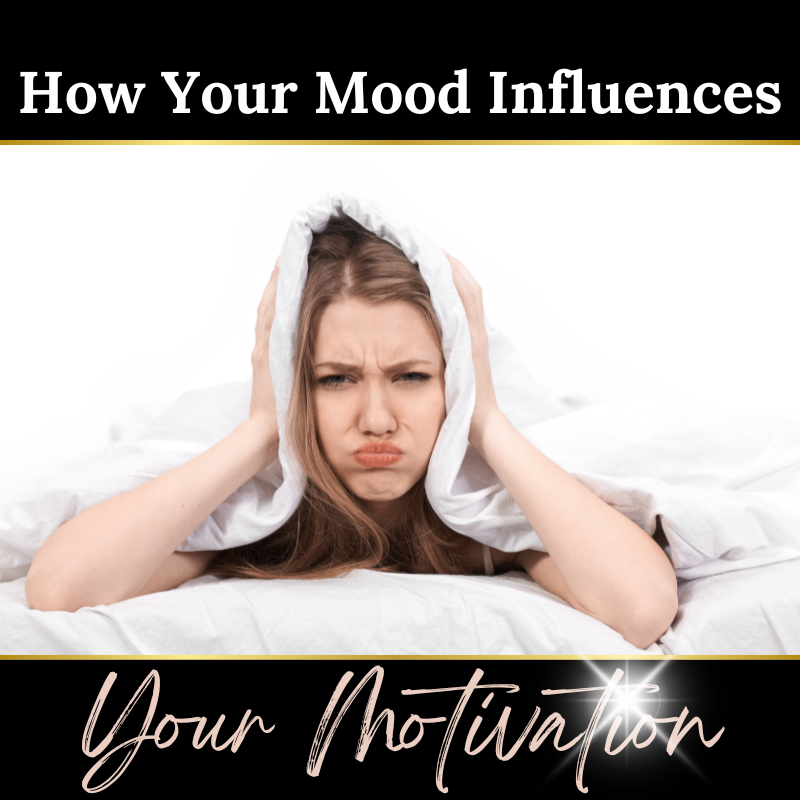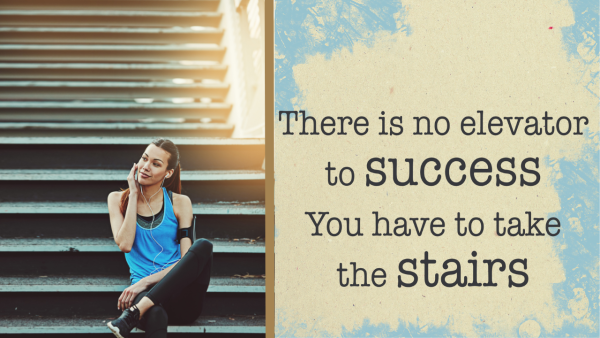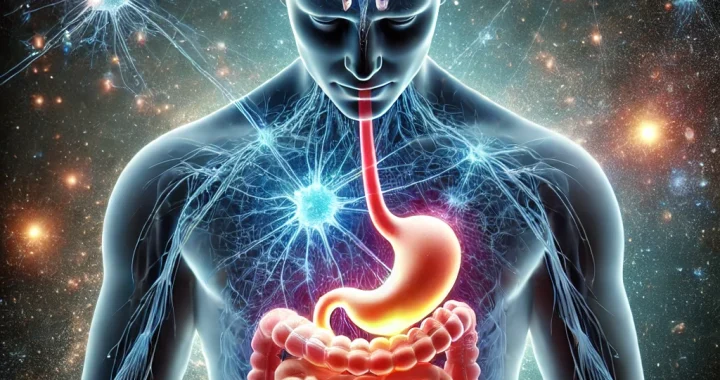
According to (Lyubomirsky et al., 2005), a person’s mood can influence a wide variety of phenomena from mental health to our cognitive processes, including reward processing and goal-directed behaviour.
The general belief is that mood leads to motivation which supersedes action, meaning: the better we feel, the more likely we are to take action.
While it’s true that mood influences motivation, relying solely on mood to drive action is problematic. Why? Because moods fluctuate, (they VARY).
If we only take action when we feel good – we risk becoming inconsistent, procrastinating, or abandoning our goals altogether every time our mood fails us.

The Brain’s Hidden Agenda: Survival First
At its core, your brain is designed to do one thing really well: KEEP YOU ALIVE.
This might sound obvious, but here’s what you need to understand : Your brain isn’t wired for long-term Success, Growth, or Happiness. It’s still running ancient survival software that prioritises short-term safety over long-term rewards.
This survival system is driven by two primary impulses: SEEK PLEASURE and AVOID PAIN.
That’s where dopamine comes in.
Dopamine is often called the “feel-good” hormone, but it’s more accurate to think of it as the “craving” chemical. It’s the trigger behind your desire for a Mcdonalds burger, scrolling through social media, or binge-watching your favourite Tv series on Netflix.
But here’s the kicker: dopamine is designed to motivate short-term actions, not long-term goals.
It rewards instant gratification : Pleasure now, Results later. That’s why your brain loves Netflix binges and procrastination. These activities are easy, predictable, and require minimal risk, keeping you “safe” in your comfort zone.
In the words of Peter Crone: “The mind’s job is not to make you happy. Its job is to keep you safe” and so sometimes, staying safe means avoiding the discomfort that comes with growth.
The Problem with Chasing Motivation

Let’s be real: waiting to “feel motivated” is like waiting for perfect weather to go for a run. It might happen occasionally, but most of the time, it won’t. That’s because motivation isn’t some magical force – it’s a byproduct of your emotional state.
Think about it. You don’t wake up every morning brimming with enthusiasm to go to work, exercise, or tackle your goals. You might even tell yourself, “I’ll do it later, when I feel like it” but here’s the hard truth: tying your actions to your emotions is a recipe for inconsistency.
Dr. Alok Kanojia a Harvard-trained psychiatrist, (known as Dr.K), often talks about the problem of relying solely on motivation. He explains that many of us live in a cycle of “dopamine dependency,” where we seek quick hits of pleasure to feel better. He states that these ‘quick fixes’ are actually draining our energy and make it harder for us to focus on long-term goals.
The Influence of Environment on Mood
Have you ever scrolled through Instagram and felt like everyone else has their life together while you’re stuck in neutral? Social media creates a “happiness deficit,” where we compare our own life to someone else’s highlight reel. This in most cases, leads to a feeling of inadequacy, which drives us to seek external solutions.
Companies are masters at exploiting this dynamic.
They sell us fitness programs, beauty products, or the latest gadget, all promising to fix the problems they helped create in the first place!
This cycle leaves us stuck, chasing external validation instead of addressing the real issue: our internal drivers.
“We don’t see the world as it is – we see it as we are.”

In other words, our perception of the world and our motivation to act – is deeply influenced by our inner state.
Why Long-Term Goals Often Fail
Here’s another common struggle: setting big goals like losing 10 kilos, writing a book, or running a marathon, only to give up a few weeks later.
Why does this happen?
The brain, in survival mode, doesn’t like delayed rewards. It’s hardwired to focus on the immediate discomfort – like sore muscles after a workout or frustration at a blank page – rather than the long-term benefits.
That’s why outcome-oriented thinking (“I want to lose weight”) often backfires.
Eastern philosophy favours focusing on the ACTION rather than the outcome or results.
So, instead of obsessing over the outcome, start celebrating the process.
IT’S NOT ABOUT GETTING TO THE DESTINATION – IT’S ALL IN THE JOURNEY!
Show up to the gym, even if you don’t feel like it. Write a single sentence, even if it feels small.
Over time – THESE CONSISTENT ACTIONS COMPOUND INTO MASSIVE TRANSFORMATION!
Rewiring Your Brain for Motivation

So how do you work with your brain instead of against it? The key is to shift from chasing motivation to building habits.
Here’s how:
-
Start Small
Dr. K often emphasises the importance of breaking big goals into tiny, manageable steps. For example, instead of saying, “I’ll stop smoking for a year,” say, “I won’t smoke today.” This keeps the goal achievable and avoids overwhelming your survival brain. -
Reframe Discomfort
Growth is uncomfortable. But instead of seeing discomfort as a bad thing, recognize it as a sign that you’re expanding beyond your comfort zone. As Peter Crone says, “Life will present you with people and circumstances to reveal where you’re not free.” -
Detach from Results
Shift your focus from outcomes to effort. Celebrate showing up, no matter how small the action. Remember: consistency builds confidence, and confidence fuels intrinsic motivation. -
Understand the Role of Dopamine
Be mindful of activities that give you quick dopamine hits but drain your long-term energy (like endless scrolling or junk food). Instead, focus on actions that provide sustainable rewards—like exercise, meditation, or meaningful connection.
Building a New Narrative
The most powerful transformation comes when you rewrite the story your brain has been telling you. Stories like “I’m not good enough” or “I’m not worthy of success.” Once you become aware of these internal patterns of thinking, you can start to question them and consequently change them.
For example, if you believe “I’m too lazy to change,” ask yourself:
Is this belief serving me? What if the opposite were true? What if I already have everything I need to succeed?
Your brain’s job is to keep you safe, not fulfilled, but you have the power to rewire it!
By understanding the connection between your mood, motivation and environment, you can break free from old patterns and create a life that feels aligned, purposeful and genuinely AUTHENTIC.
REMEMBER: Small, consistent actions lead to massive change over time!
Start small. Celebrate your effort and trust that motivation will follow your actions – not the other way around!
All my Love,
Allegra Lite ❤️




